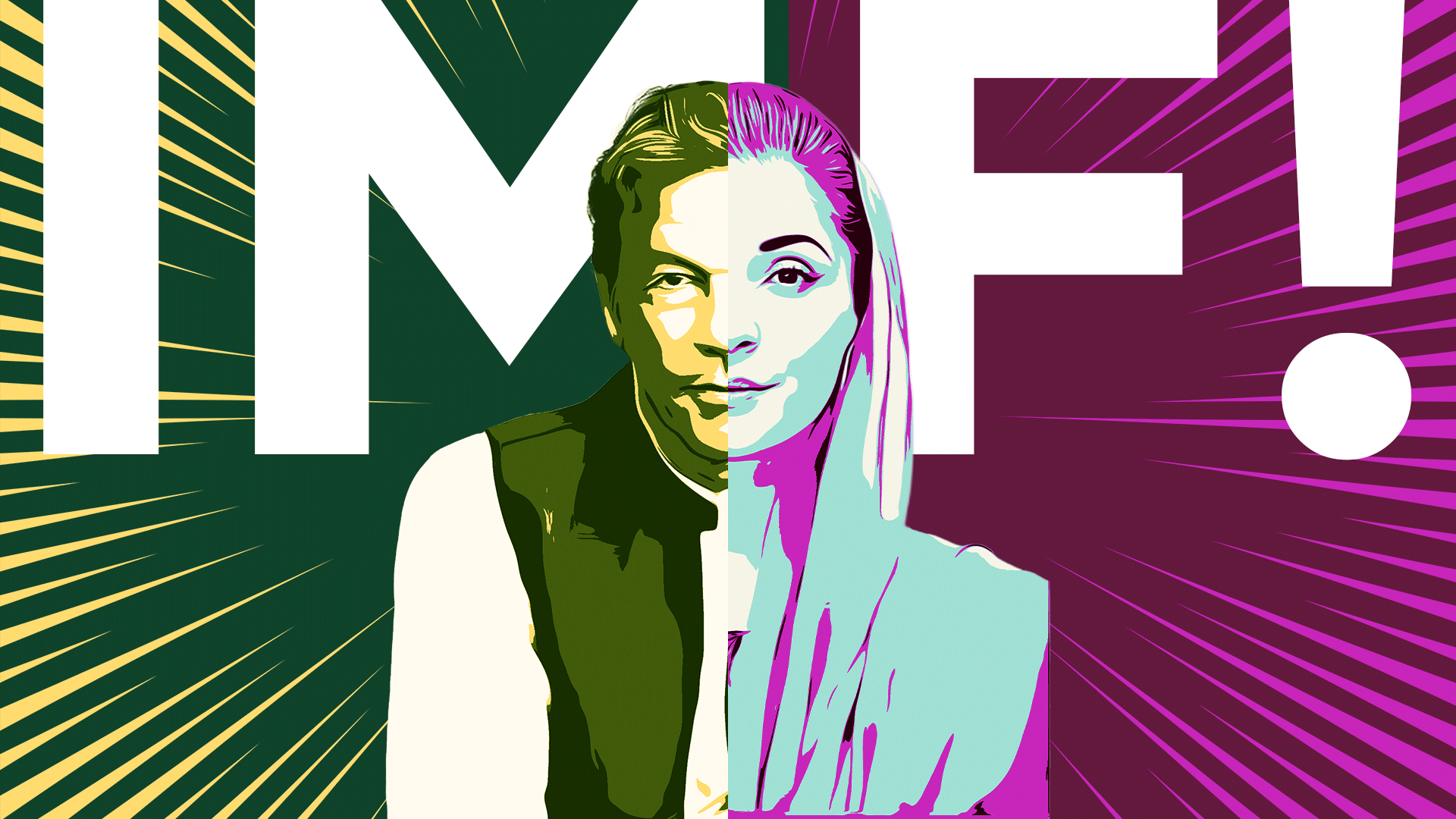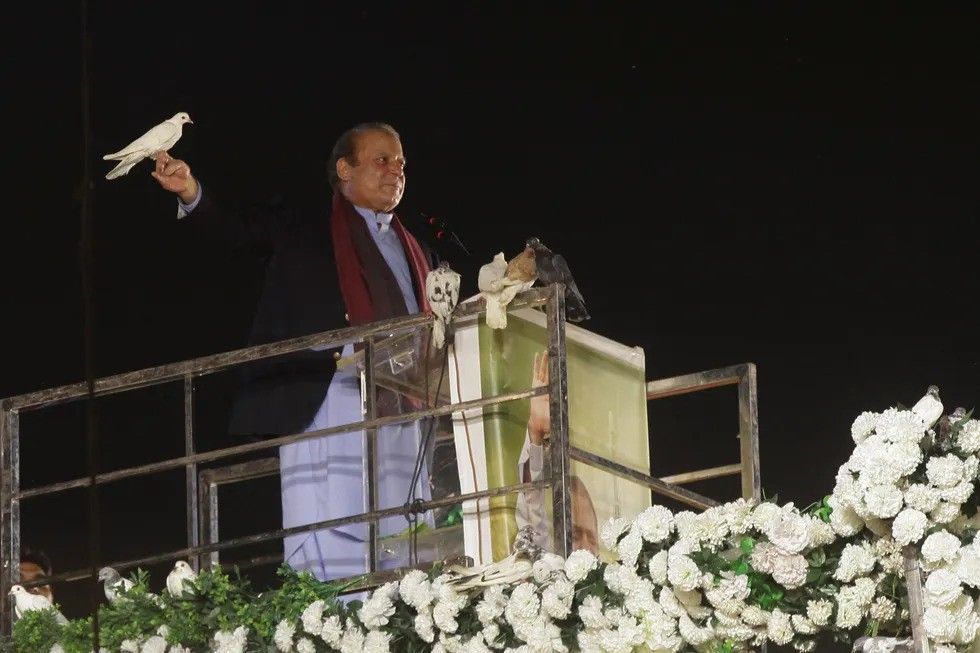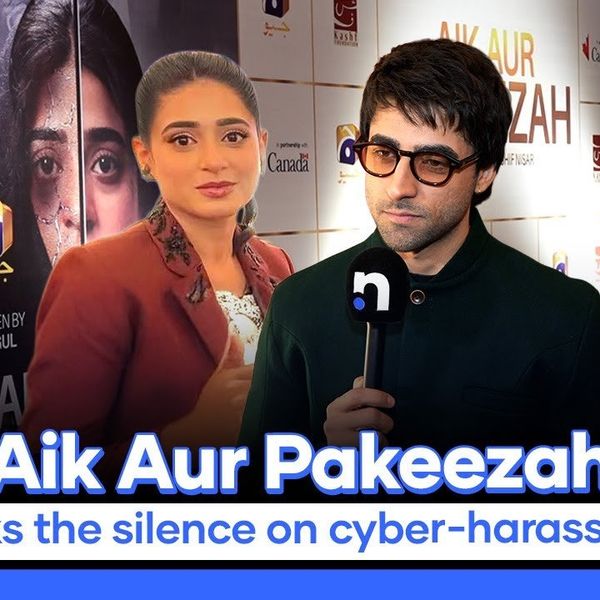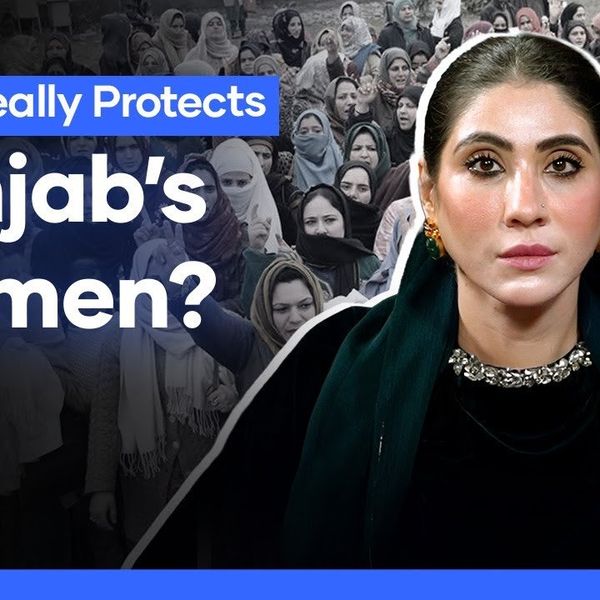The IMF hates subsidies. Pakistani politicians are learning this the hard way.
A comment on how populist politics and the IMF cannot be reconciled, reducing the policy space for Pakistan's ruling politicians.

Amber Shamsi
Pakistan Editor
Amber Rahim Shamsi is an award-winning multimedia journalist, political commentator, and free speech advocate with extensive experience in media development. She previously served as Director of the Centre for Excellence in Journalism (CEJ) at IBA, where she spearheaded the launch of iVerify Pakistan, a UNDP-supported fact-checking platform. A former BBC World Service bilingual reporter, she has hosted three major current affairs shows on Pakistani news channels. She is also an IVLP and ICFJ Digital Fellow, a media trainer, and an advocate for press freedom and gender representation in journalism.

Nukta Creative
Relief and subsidy - the two favorite words of politicians, their currency with the masses when they talk about the economy.
The International Monetary Fund (IMF) hates subsidies. Relief isn't in the IMF's vocabulary; it doesn't need to win elections. So, it can speak of 'macroeconomic stability,' 'fiscal discipline,' and 'export dynamism’.
These terms can cost politicians their support among the people.
Take the chief minister of Punjab, Maryam Nawaz Sharif, and her father, the president of the ruling party, Nawaz Sharif.
At a press conference this August, Nawaz Sharif announced that the Punjab government would be reducing electricity prices for lower-income households. With Maryam Nawaz seated beside him, he said the chief minister had “cut expenses from other heads, including development funds.” The subsidy is just for two months - August and September.
First, how much? And where will it come from? Chief Minister Maryam Nawaz said it would cost 45 billion Pakistani rupees, while Punjab’s Finance Minister Mujtaba Shujaur Rehman said it would cost double the amount, half from the provincial government budget, and the other half from the federal government.
Mr. Rehman was absent when the Punjab Cabinet approved the subsidy.
To return to Nawaz Sharif, who has gone curiously quiet since the disputed February elections. This was a move to reassert himself as a friend of the masses. As he did on his return from self-imposed exile in October 2023, in his speech at the symbolic Minar-e-Pakistan when he spoke at length about electricity bills.
He may have lost chunks of Punjab to Imran Khan’s anti-establishment defiance, but he knew one way to try and win it back was to appeal to what matters most to people - inflation and utility bills. Short-term relief for a long shot, that’s the gamble.

Political parties—big and small, whether opposition or coalition—criticized the scheme as an opportunistic ploy, ripe for media scrutiny. Politics is about finding an opportunity, and whether it was about the budget, federalism, or the duration of the assistance, there was plenty of material for media consumption.
But what could hurt more than the media questions, and the response of political parties, is that cold international lender that throws cold water on all sorts of political schemes. Reporter Shahbaz Rana has quoted government sources saying that the IMF will be clamping down on any policy that undercuts federal commitments. This means that the chief minister Punjab’s August and September subsidies remain, but the free solar panel scheme could be in jeopardy.
This would be a first. The IMF, known for its stringent oversight of federal spending, has usually ignored provincial schemes but may now take a stricter stance. As Pakistan awaits approval for a $7 billion IMF loan program, provincial revenue collection and spending is under scrutiny.
Meanwhile, the rap on the knuckles from coalition partner Pakistan People’s Party (PPP) chairperson Bilawal Bhutto underscores the fragility of Prime Minister Shahbaz Sharif’s government. "I asked the prime minister how this would be possible. In just two months, people will face more problems.” Bhutto also drew a parallel between now and two years ago.
Rewind to February 2022. Against the backdrop of official Pakistani flags - and an opposition ready to pull away the prime minister’s seat via a no-confidence move - then Prime Minister Imran Khan announced that his government would not be hiking petrol and electricity prices despite the recommendations of the relevant regulators.
Then Finance Minister Shaukat Tarin said the money would come from various sources. Sound familiar? Politically, Imran Khan’s coalition government was held together by glue and bootstraps. And the kicker, Pakistan was up for a review of its IMF program.
Obviously, the IMF doesn’t like the word ‘relief’, or populist economic policies that promise a quick high with a monster hangover. At the same time, while it’s easy to criticize politicians for irresponsibility, shrinking political and fiscal space means that the people who vote for them do not get to hold them accountable.Echoes of Populism: Comparing political promises
Imran Khan
Former Prime Minister of Pakistan
February 28, 2022
"Today I want to tell you guys this good news that, instead of increasing it, we will decrease [petrol prices] by Rs10."
Nawaz Sharif
Three-time former Prime Minister of Pakistan; President of PML-N
August 16, 2024
“Maryam tells me that the bills are higher due to the hot weather, so she has ordered a relief package to reduce customer bills in August and September.”
Muzammil Aslam
Then spokesperson for the PTI-led federal govt’s Finance Ministry
March 4, 2022
"We have that fiscal space to fund this money."
August 17, 2024
Now adviser on finance to the chief minister in the PTI-led provincial govt of Khyber Pakhtunkhwa
"It would be tantamount to wasting public resources in the name of relief."
Ammar Khan
Economist
February 28, 2022
"Populist economics have often failed, or have been a rather expensive solution to the problems facing Pakistan. Reducing petrol and electricity prices would trigger a deficit pile-up, which would be financed through more borrowing, which would further crowd out private sector borrowing, and put upward pressure on interest rates. An already precarious fiscal balance would further deteriorate, while the ever-envied current account deficit would continue to widen."
August 21, 2024
"The money has been transferred to the provinces, and it is the province’s prerogative on what it does with the money. But can the money be better spent? Yes. Will there be reforms to address underlying issues beyond short-term measures?"
* The writer is Pakistan editor for Nukta.










Comments
See what people are discussing